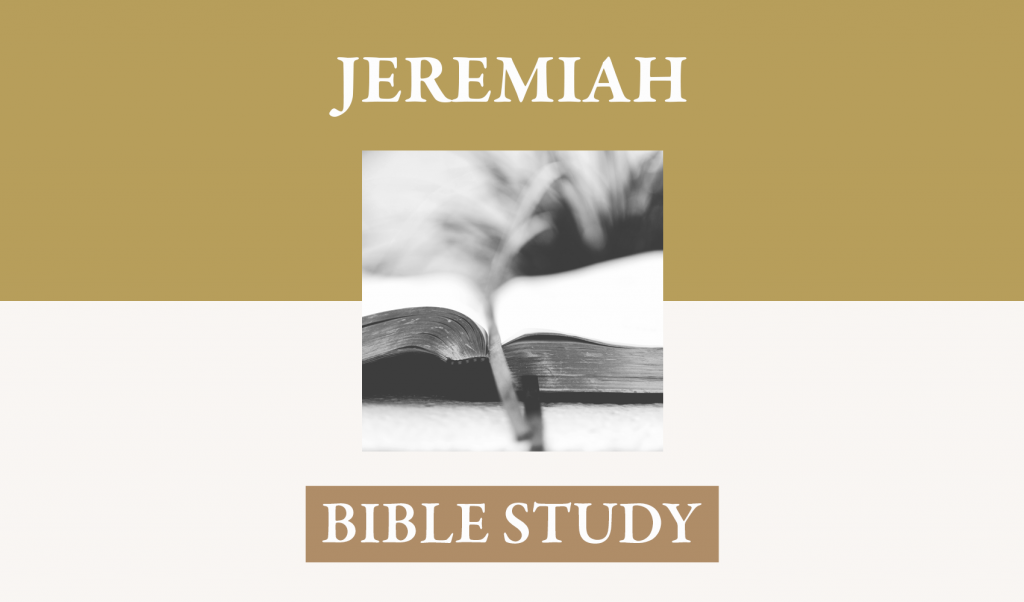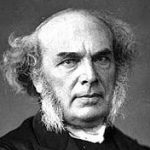Lesson Focus: This lesson is about joining God in His concern for the moral and spiritual condition of people.
See the Problem: Jeremiah 8:4-7.
[4] "You shall say to them, Thus says the LORD: When men fall, do they not rise again? If one turns away, does he not return? [5] Why then has this people turned away in perpetual backsliding? They hold fast to deceit; they refuse to return. [6] I have paid attention and listened, but they have not spoken rightly; no man relents of his evil, saying, ‘What have I done?’ Everyone turns to his own course, like a horse plunging headlong into battle. [7] Even the stork in the heavens knows her times, and the turtledove, swallow, and crane keep the time of their coming, but my people know not the rules of the LORD. [ESV]
[4-7] This section makes use of three commonsense observations (about the actions of people [4-5]; horses [6]; and migratory birds [7]) to bring out how unnaturally Judah was responding to its circumstances. The Lord’s message begins with a series of questions to prod the people into thinking about their situation. The first question deals with someone falling down. The natural response of someone who has slipped and fallen is to try to get up. The second question concerns turning away which denotes either movement back to a point previously left or movement away from where one is. The picture may simply be that of someone going away from home, whether to work in the fields, or on a longer journey. If he goes away, you would expect him to come back. It may also depict an individual going off a path, and after getting lost, making every endeavor to retrace his steps back to the right route. This verb has already been used extensively in chapter 3 because it may be applied spiritually both to apostasy and to repentance. But it appears to be normal human behavior that is in view here. Perhaps it is simply pointing out that someone who goes away from home is normally expected to return. It is a frequent feature of the style of Jeremiah that a sequence of two questions is followed by a third beginning Why, using the situation posited by the previous questions to present a challenge. Here the further questions contrast the ordinary and expected reactions and behavior of verse 4 with that displayed by Judah and Jerusalem in verse 5. Why then has this people turned away in perpetual backsliding? The normal human action of turning away in verse 4 is now applied spiritually: they have left their spiritual home, that is, a true reverence for the Lord, and are no longer walking in His ways. It is not a single instance of departure that is in view, but of repeated slippage. It is not immediately clear if intermediate returns are implied in a cycle of apostasy and return, but it is more probably a description of a situation where every movement they make takes them further away from the Lord. Backsliding makes clear that the focus is now on their spiritual inconstancy. After the question comes the accusation. They hold fast to deceit; they refuse to return. Their grasp of deceit is as firm as that of a soldier’s hold on the weapons he uses to keep himself alive in battle. Deceit probably refers to the delusive beliefs that they promoted, namely, that there was nothing much wrong with Judah’s relationship with the Lord and they could therefore confidently anticipate divinely guaranteed peace. This was what maintained the people in their rebellion. Refuse to return shows that they had been made aware of the situation, and had deliberately and unnaturally rejected moving back to the Lord. Should not those who turn away be expected to return? In verse 6 the Lord states that, despite careful and extended examination of their behavior, there are no hopeful signs. Their speech is flawed both in what they say and in what they do not say. This is the same verdict as was to be found in 5:1-3. Regard for truth and proper conduct had gone by the board. And if that was true at the level of their dealings with one another, it was also the case at the spiritual level of their dealings with the Lord where they were equally oblivious to the error of their ways. Relents denotes reconsideration of previous conduct, recognition that it was wrong, and especially feelings of deep contrition and regret for it, such as the attitude of Job when he said, I despise myself, and repent in dust and ashes [42:6]. Everyone turns to his own course signifies the sense of turning towards something and immersing oneself in it like a horse plunging headlong into battle. Plunging brings out the impossibility of restraining horses once they have started to charge into battle. Oblivious to the dangers around them, they sweep headlong in deliberate and vigorous action which is unstoppable. So too the people commit themselves not to a path through life, but a course, something that is taken at a gallop so determined are they to get on with what they have started. There is no way they are going to be turned back. There was a long standing tradition in Israel that the natural world could be used to illustrate the divine message. Animal behavior was not regarded as the product of instinct or an impersonal natural law, but of a divinely implanted norm. Because animals regularly follow this pattern, they provide an object lesson to humans whose behavior is erratic. Here in verse 7 the focus is on the migratory instincts of birds: they know when to come and go. These birds observe a regular pattern of migration. But the behavior of God’s people reveals no such faithfulness. The birds observe the God-appointed pattern for their living but my people know not the rules of the Lord. Now there could be no doubt that the people did know these requirements at an intellectual level, but know here carries the sense of inward commitment. That was what was lacking.
Avoid Superficial Responses: Jeremiah 8:8-13.
[8] "How can you say, ‘We are wise, and the law of the LORD is with us’? But behold, the lying pen of the scribes has made it into a lie. [9] The wise men shall be put to shame; they shall be dismayed and taken; behold, they have rejected the word of the LORD, so what wisdom is in them? [10] Therefore I will give their wives to others and their fields to conquerors, because from the least to the greatest everyone is greedy for unjust gain; from prophet to priest, everyone deals falsely. [11] They have healed the wound of my people lightly, saying, ‘Peace, peace,’ when there is no peace. [12] Were they ashamed when they committed abomination? No, they were not at all ashamed; they did not know how to blush. Therefore they shall fall among the fallen; when I punish them, they shall be overthrown, says the LORD. [13] When I would gather them, declares the LORD, there are no grapes on the vine, nor figs on the fig tree; even the leaves are withered, and what I gave them has passed away from them." [ESV]
[8-13] These verses reflects a period when Jeremiah was in conflict with the religious leaders of the community, probably during the early years of Jehoiakim. The questioning begins again in an emphatic manner, but it is not immediately clear who is being interrogated. In verse 9 it seems to be a particular group who are being described as the wise, but here it is rather the people as a whole who are making the claim to be wise. Once again this needs to be taken not as a precise quote, but as a dramatic representation of the attitude they displayed. No doubt they felt that their claim to be wise would stand scrutiny because they could say the law of the Lord is with us. The words may point to more than a claim to possess copies of the law; there is also an implicit assumption that they have mastered the law. The next part of 8:8 is notoriously difficult to exegete, not because of difficulty with any of the words used, but because its overall meaning is obscure. Behold introduces a strong contrast to the behavior expected of those possessing the law of the Lord. The pen was probably a reed sharpened to a point, used to write on papyrus or parchment. The mention of a pen reflects back on the law of the Lord to show that it is a written document that is in view, and not just oral tradition. Scribes were a class of people who became prominent in the period after the Exile, not for their writing abilities, but because they undertook to explain and teach what they copied, principally the Law of Moses and the various regulations connected with it. But what were the scribes doing? It appears that the scribes were not teaching the law of the Lord correctly and therefore were guilty of lying to the people concerning what the law actually taught. The mention of the wise men in verse 9 is probably a reference to the group who are the leaders and opinion formers of the community, acknowledged as competent and efficient scholars and administrators. They would all be scribes. Some might be teachers at the Temple school, but many would have been connected rather with the civil or political establishment. At the time of Josiah’s reform such men acknowledged the standards of the Law, but they did not practice them. Therefore they will be put to shame. In rejecting what has been divinely disclosed the leaders of the community have acted unwisely; additionally they have cut themselves off from the fount of true wisdom. The judgment to come upon the unwise leaders is then spelled out more fully, not directly in terms of foreign invasion, but through some of its consequences. They do not regard the word of the Lord, but act autonomously, making up the rules to suit themselves. This is the opposite of walking in the way of the righteous. So the Lord will act to bring them down or make them stumble. The groups who had duped the people will be caught up in the calamity which will overtake them all; there will certainly be no exemption for those who bear greater responsibility for what has happened. In verse 13 the thought introduced at the end of verse 12 regarding the coming judgment of the Lord is developed further. The agriculture of the land will be devastated, not by drought or pestilence, but by the enemy forces the Lord will bring on His people. By way of judgment upon His people, the land and blessings of the covenant which He had given them will be taken from them as a curse for their covenant unfruitfulness.
Reflect God’s Broken-Heartedness: Jeremiah 8:18-9:1.
[18] My joy is gone; grief is upon me; my heart is sick within me. [19] Behold, the cry of the daughter of my people from the length and breadth of the land: "Is the LORD not in Zion? Is her King not in her?" "Why have they provoked me to anger with their carved images and with their foreign idols?" [20] "The harvest is past, the summer is ended, and we are not saved." [21] For the wound of the daughter of my people is my heart wounded; I mourn, and dismay has taken hold on me. [22] Is there no balm in Gilead? Is there no physician there? Why then has the health of the daughter of my people not been restored? [9:1] Oh that my head were waters, and my eyes a fountain of tears, that I might weep day and night for the slain of the daughter of my people! [ESV]
[18-9:1] These verses express profound grief over the situation that has arisen in Judah and Jerusalem, and over what is still to come. The prophet tells of his grief at what he has seen. He cannot suppress his emotion because the dire ruin of his people pierces him through. Jeremiah speaks in verse 18 and we are brought into the thought-world of the prophet. Then we overhear the prophet’s portrayal of the people speaking as they will do in exile [19]. A divine word of judgment intervenes in the last half of verse 19, and this is followed first by further speech from the people [20], and then by the prophet telling of his personal reaction [21] before posing a puzzled challenge [22], which flows into the words of 9:1-2. In this way Jeremiah communicates his own reaction to the message entrusted to him and seeks to evoke a similar response of perplexity from his audience. The possibility is still open that they will react appropriately to what they are being told, even though subsequent descriptions of the people [9:2-6] do not render that outcome very probable. In verse 18 the prospect of what is about to happen has so inwardly overwhelmed Jeremiah that he has become weak and distraught. Interpretation of the scene envisaged in verse 19 depends on the rendering of the cry of the daughter of my people. If it is a description of Judah then what follows is the confident speech of the people as they expect the Lord to intervene on their behalf. And the second part of the verse would then be the divine argument that such an expectation is inconsistent with their conduct. However, the people ignore such words of warning and blithely continue to expect the Lord to act in terms of the timetable they have set [20]. In the face of such obstinacy and spiritual blindness the prophet recognizes that disaster will come upon them, and in anticipation of that already feels its impact himself [21]. He then wonders why there has been no cure for their fatal disease [22]. The alternative translation is based round a scenario where the prophet has had revealed to him a future scene of the exiled people, who are perplexed by what has happened to them. The daughter of my people is then understood to be a tender and affectionate address which is used both by the Lord and by the prophet, and personifies the people as an individual woman. So these plaintive words have been revealed to the prophet as the reaction of those who have been taken into exile. In the distant land of their exile they are trying to rationalize what has happened. They had been sure that the Temple presence of the Lord in Zion guaranteed security for the city. It was His place; how then could He have permitted all these things to come upon His people? Could not the King defend His kingdom? The exiles’ two questions are then taken up by a question of the Lord which interrupts their chain of thought, but expresses clearly the fundamental factor in the situation: Why have they provoked me to anger with their carved images? If they really believed that the Lord was present in Zion, then they would not have indulged in behavior that was such a blatant contradiction of His presence there. The people are portrayed as being unable to see the discrepancy between their confession and their conduct. There was no way the Lord could be expected to stay in His abode in Zion if others were given residence there also. The people then resume their lament in verse 20. They see their last chance has gone. The harvest is that of the wheat crop in May/June. If it proved to be a disaster, then the people could always look forward to the fruit crop that would be gathered in the late summer months of July/August. But once that has failed there can be no hope of deliverance from famine. But it is not agriculture that is at the forefront of their minds, but the conditions prevailing in Judah. The beliefs of Zion theology had led them to expect divine deliverance, even at the last minute. That has not happened, and the people in exile are not going to be able to account for what has befallen them. In verse 21 Jeremiah resumes from verse 18 his expression of how distraught he personally is by the disaster coming on his people. The breaking of the people may be the physical disaster that will come upon them, but it goes beyond that to their spiritual condition. Jeremiah cannot keep himself aloof from the bewilderment that will come upon his fellow countrymen. What he sees engulfing them brings grief to him already. The horror of the tragedy is intensified for him because he knows it is all so unnecessary: they had been warned. Dark thoughts oppress Jeremiah. The burden of being the Lord’s prophet to an unresponsive people lay not only in the difficulty of putting up with their rejection of his message, but also in his own vivid apprehension of what was coming upon them. Dismay has him in its grasp. He did not exult over their fate; it grieved him because he was certain that the Lord’s word was going to come true. In terms of the metaphor of wounding that he has introduced, Jeremiah then wonders if nothing could be done for the people [22]. Gilead lay to the east of the Jordan between the Sea of Galilee and the Dead Sea. It was a rugged and wooded area that had long been associated with an aromatic resin which was used as a soothing ointment and also gave a pleasant odor. This rhetorical question expects the answer, ‘Of course there is balm in Gilead’. The area that produced the balm would of course have people who were experts at applying it effectively. Again the question expects the answer, ‘Yes, there is a physician there’. There then follows the third question that makes up Jeremiah’s characteristic triplet in which two ordinary questions set up a scenario, the consequences of which are then brought out with a third question beginning ‘Why?’. If the medicine exists, and the doctors exist, then surely a cure can be effected. But Jeremiah is not just talking about physical injuries, although they would abound during a military invasion. He is asserting the need for a spiritual cure, and is pointing to the Lord Himself who was viewed as the Healer par excellence in Israel. So when he poses the question as to why there is no healing, there can be only one answer: ‘There has been no repentance.’ Though Jeremiah no doubt hoped that the intensity of his own emotion might have an impact on the spiritual insensitivity of his fellow countrymen, his expression of anguish was not an artificial exercise to stimulate a response, but reflects in hyperbolic language how deeply he was exercised by the situation he reported. If he could, his grief would be unremitting so intense is the disaster awaiting the nation.
Questions for Discussion:
1. What is the purpose of Jeremiah’s three questions in 8:4-5? What was Yahweh’s complaint concerning His people? One clear indication of our spiritual health is, when we sin, how quickly do we return to God in sincere repentance, seeking His forgiveness.
2. In verse 9, Jeremiah presents the central problem with the people: They have rejected the word of the Lord. The connection of the word with wisdom indicates that the problem was their disobedience to God’s commands found in His word. They possessed and had intellectual knowledge of the law of the Lord (the law is with us). But they did not have “heart” knowledge; they did not delight … in the law of the Lord [Psalm 1:2]. What can we learn from their mistake? How can we avoid rejecting God’s word?
3. How did God react to the people’s rejection of His word? Why do you think God punished His people for rejecting His word? What does this tell us about the importance God places on His word?
4. How did Jeremiah react to the plight of his people [8:18-9:1]? What does this teach us about how we should act when people in our churches turn away in perpetual backsliding and reject the word of the Lord?
References:
The Message of Jeremiah, Derek Kidner, Inter Varsity.
Jeremiah, John Mackay, Mentor.
The Book of Jeremiah, J.A. Thompson, Eerdmans.

















